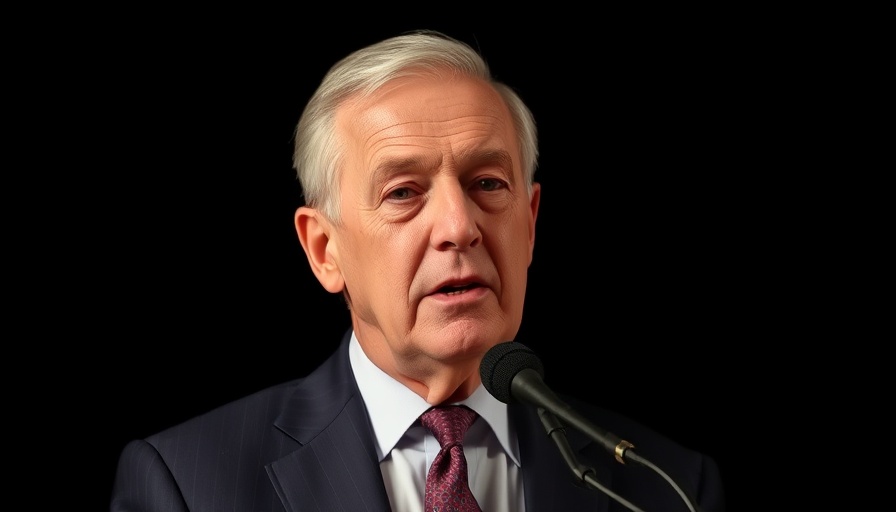
The Impending Layoffs in Health Agencies: What's at Stake?
Across the nation, a looming crisis is taking shape as nearly 82,000 workers at various public health agencies brace for significant layoffs. The anxiety rooted in this situation stems from a recent announcement by Health and Human Services (HHS) Secretary Robert F. Kennedy Jr. Aiming to reconfigure the daunting structure of the department, which he labels as a "sprawling bureaucracy," Kennedy revealed plans that will see at least 10,000 jobs cut, as part of an overall reduction of 20,000 positions within the HHS. This drastic move comes just days before employees were advised to prepare for an uncertain future.
Understanding the Background of the Health Workforce Cuts
The announcement from Kennedy has sent shockwaves throughout the public health community. This reorganization is not just about job cuts; it signals a radical overhaul of public health strategies. The fast-tracking of layoffs, especially those working to combat infectious diseases, raises questions about the future direction of health initiatives in the United States. For many employees who have dedicated their careers to safeguarding public health, the threat of pink slips has not only personal but also profound professional implications for the ongoing fight against diseases.
The Broader Context of Health Policy Changes
As part of this broader strategy, Kennedy aims to streamline operations and consolidate efforts under a new body—the Administration for a Healthy America. The move is particularly controversial given that many industry experts argue that such cuts could severely hamper efforts where improving public health is paramount. Former chair of the National Vaccine Advisory Committee, Dr. Robert H. Hopkins Jr., has expressed concerns that the adjustments will undermine key health efforts, potentially reversing gains made in disease prevention and health improvement.
What Employees Are Facing: A Personal Story
In a revealing email shared anonymously with the media, some FDA employees were instructed to pack their belongings. This unsettling direct communication reflects the insecurity that workers are now facing. Employees who once felt secure found themselves suddenly thrown into turmoil, pondering the immediate actions they might need to take. With their futures hanging in the balance, many are left wondering about their next steps, embodying the fear that accompanies mass layoffs.
Future Predictions: What This Means for Public Health
The real risk for public health initiatives post-layoffs is profound. Experts fear that narrowly focusing on budget cuts could lead to a diminished capacity for health agencies at a time when they are most needed. Nationwide vaccine advisory committees, such as those that guide initiatives on tackling HIV/AIDs, have already seen meetings canceled, placing critical health policies into jeopardy. Layoffs and the subsequent restructuring could create a ripple effect, impacting health responses and ultimately, the wellness of Americans.
Considering Diverse Perspectives: The Argument for Change
While the anxiety among employees remains palpable, a segment of the public sees the proposed cuts as a necessary realignment. Some argue that the health department’s $1.7 trillion budget lacks transparency and accountability, suggesting that a downsizing could serve as a wake-up call for efficiency. The perspective of those vying for streamlined operations emphasizes the importance of resource allocation that centers on engagement and efficacy, fostering an environment conducive to measurable health improvements.
Call to Action: Engage in Public Health Conversations
As these changes unfold, it is critical for community members, homeowners, and renters in Davenport and beyond to engage in discussions about public health and workplace stability. Creating avenues for open dialogue on health initiatives and personal wellness can foster a robust community response. Everyone has a stake in the outcomes of these decisions.
Conclusion: Navigating Uncertain Waters Together
The impending layoffs within the nation’s health agencies illustrate a pivotal moment in public health policy, bringing about challenging yet essential conversations about budget allocations, employee welfare, and the health of our communities. As each side weighs in on the debate, it remains vital to remain informed, engaged, and proactive. The well-being of future generations may rest in the balance, and your voice can contribute to meaningful change.
 Add Row
Add Row  Add
Add 






Write A Comment